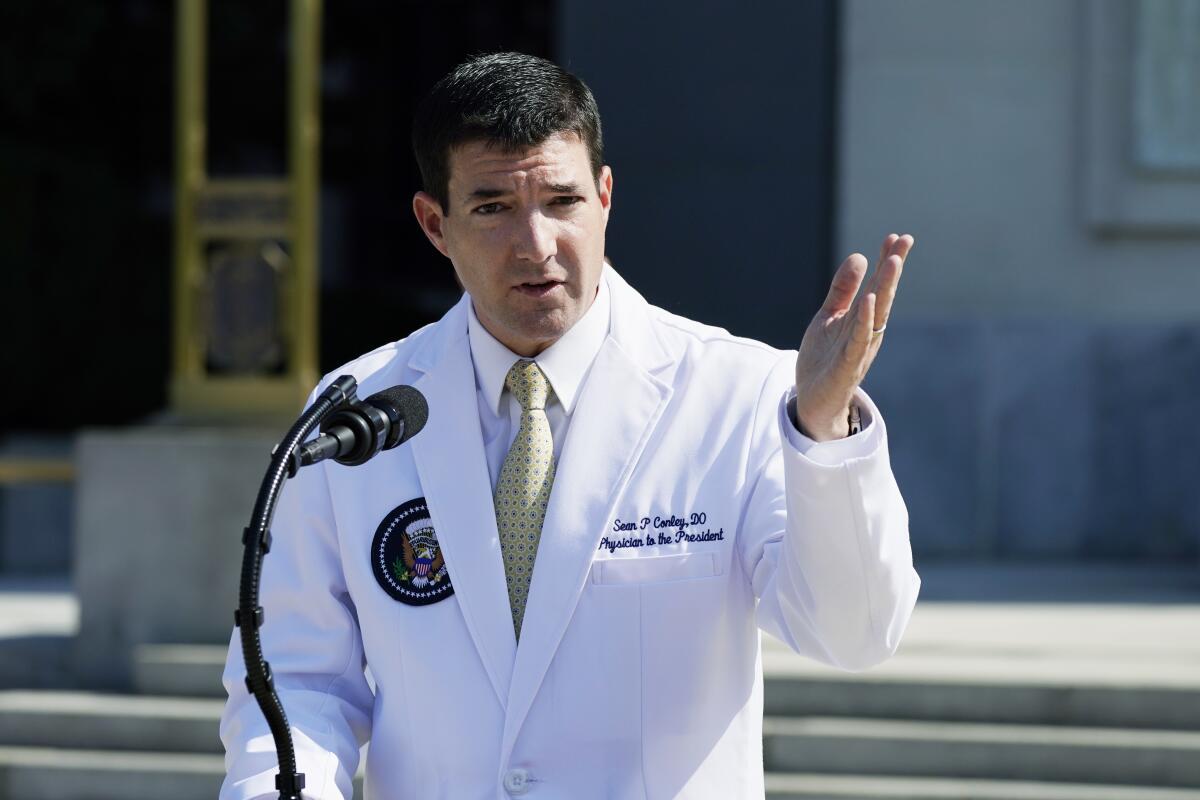Trump’s doctor is a D.O. How is that different from an M.D.?

- Share via
What is the difference between a doctor of medicine (an M.D.) and a doctor of osteopathic medicine (a D.O.)?
It’s a question many Americans may be asking after learning that Dr. Sean Conley, who is managing President Trump’s COVID-19 care, is a D.O. and not an M.D.
The first thing to know is that just like M.D.s, D.O.s are fully licensed doctors who practice medicine, prescribe drugs and perform surgeries in all 50 states, according to the American Osteopathic Assn. They also practice in 44 other countries around the world, the American Assn. of Colleges of Osteopathic Medicine says.
And just like M.D.s, D.O.s attend four years of postgraduate school, followed by a year of internship, and do at least two additional years of residency before they begin practicing medicine.
Although M.D.s are educated in allopathic medical schools and D.O.s go to osteopathic medical schools, they apply to the same residency programs and can pursue careers in any field, including radiology, surgery, pediatrics or oncology.
Today, roughly 25% of medical students across the country are enrolled in colleges of osteopathic medicine, and more than 100,000 D.O.s are in practice.
When President Trump said he had tested positive for the coronavirus, he became ground zero for the most high-profile contact-tracing effort of the pandemic.
The main difference between M.D.s and D.O.s is philosophical, said Dr. Kevin Klauer, a former emergency room physician who now serves as chief executive of the American Osteopathic Assn.
In osteopathic medical schools, future D.O.s are taught to take a holistic approach to their patient’s care rather than just treating an ailment.
“Infused into the osteopathic curriculum is a focus on treating the whole person, including the mind, body and spirit,” Klauer said.
That might mean considering how a medicine or therapy will affect the body’s other systems, or asking about depression even when a patient’s primary concern is a complication with something like diabetes, he said.
M.D.s who attend allopathic medical schools may also take this same approach, but it is not built into their education in the same way, Klauer said.








